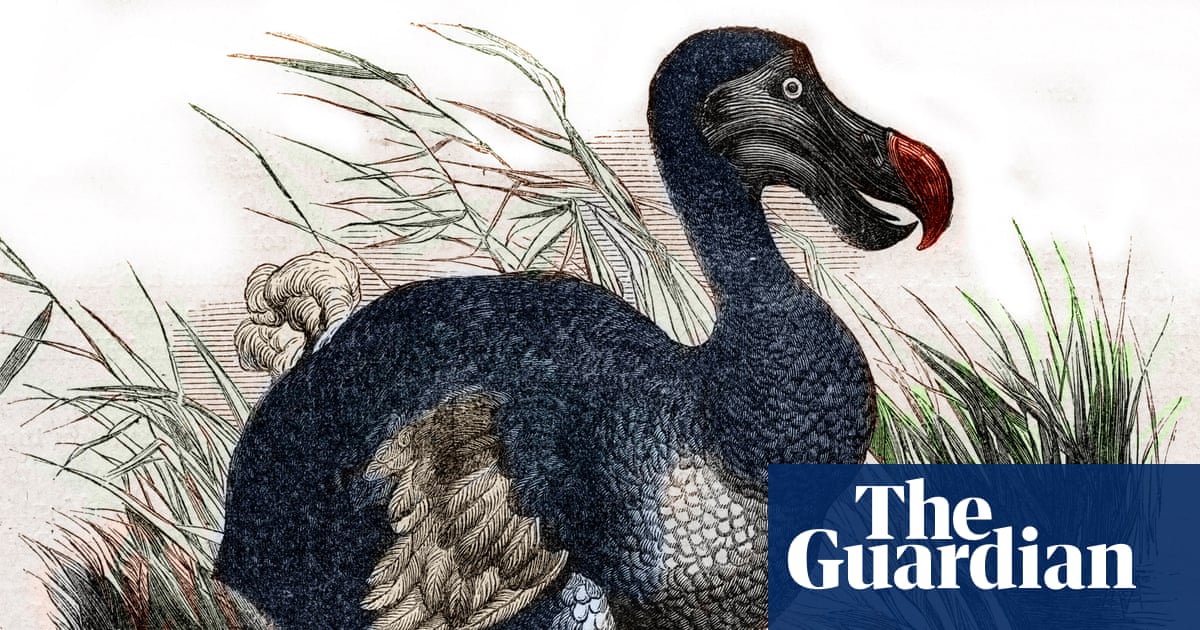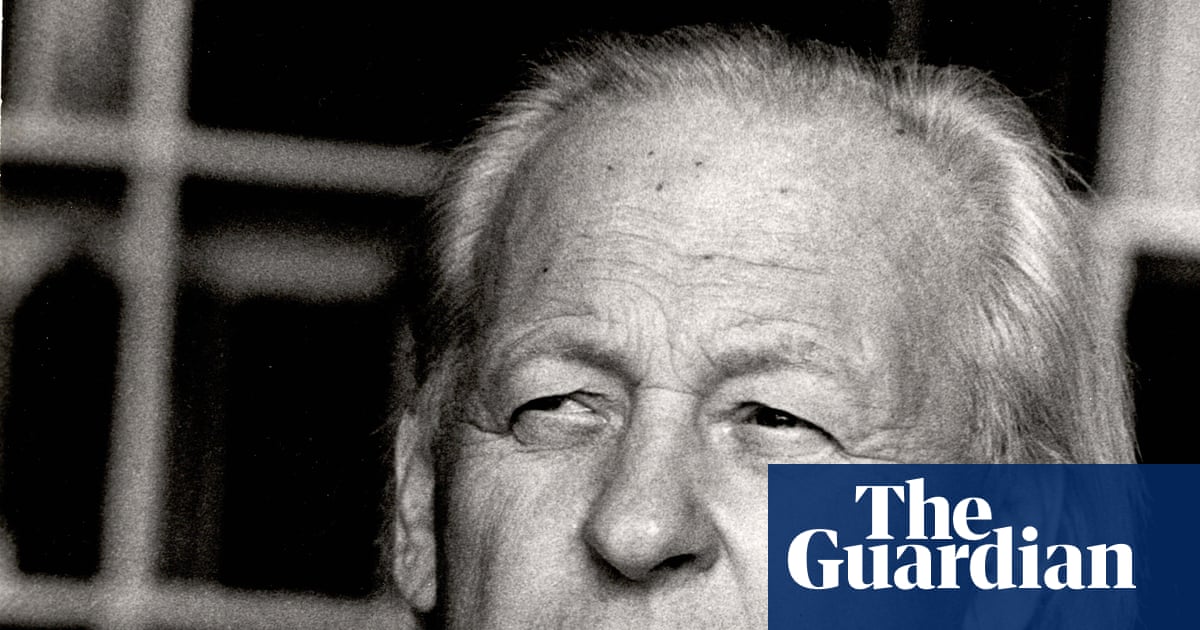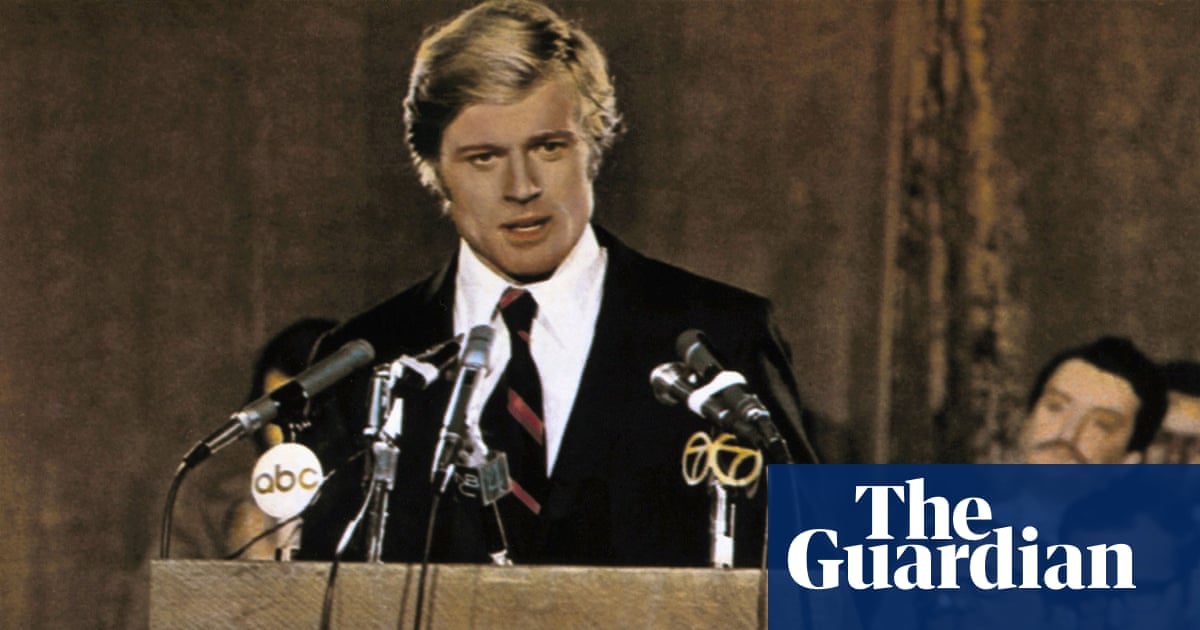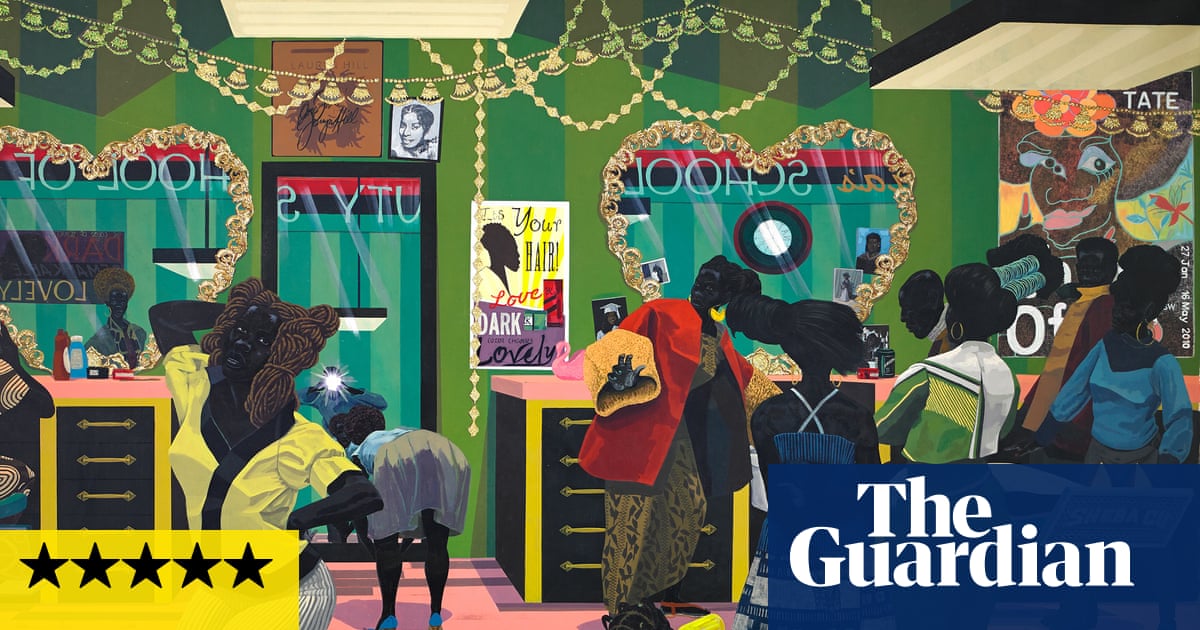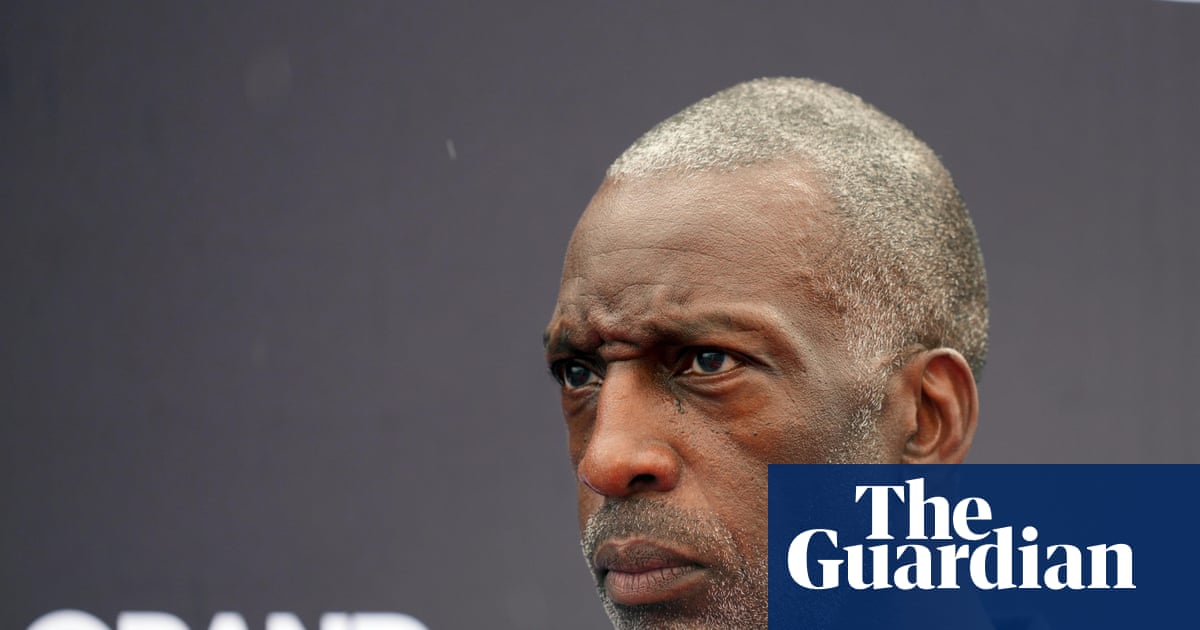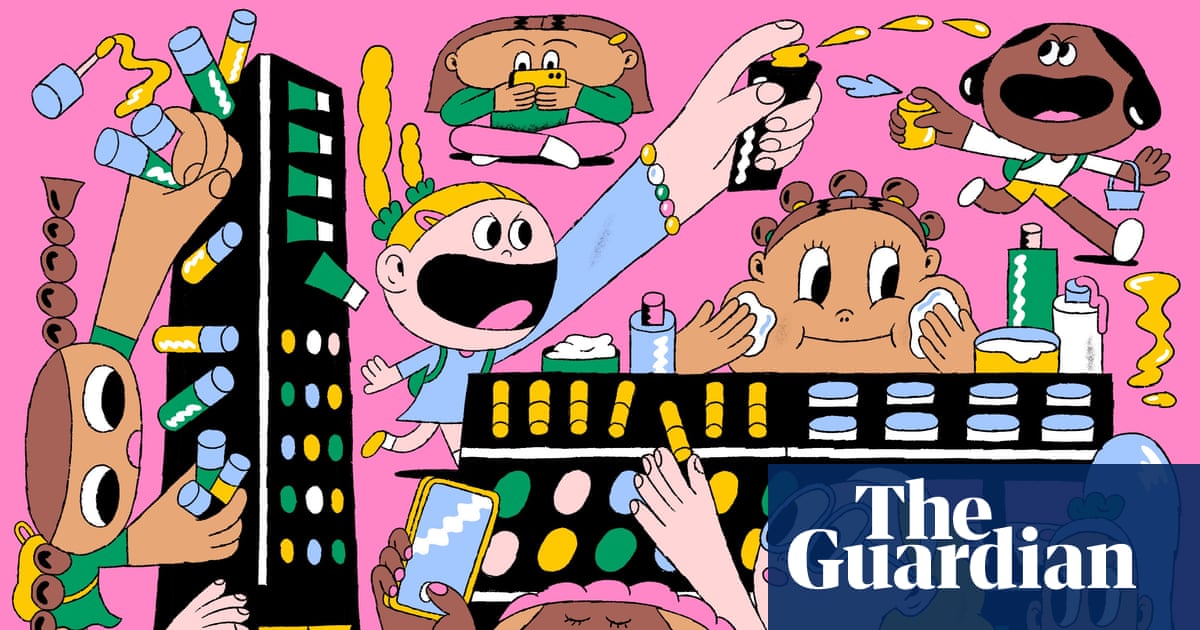It was back in 2019 that the role of Anna Karenina was first mentioned to Natalie Dormer. Six years, many screen roles, one pandemic and two children later, Dormer is finally set to take on the titular role of Leo Tolstoy’s epic as Phillip Breen’s adaptation comes to Chichester Festival theatre. The delay has ended up working out well, says Dormer, since Tolstoy’s characters are at the “cutting edge of technology”. The new railways were transforming Russia, and that wasn’t all. “Electric light!” exclaims Dormer. “We talk about it in the play, how that’s going to revolutionise their lifestyles. That trepidation about new technology is so adaptable to today: the terror of the AI train that’s coming our way. That generation of adults in the story – they’re on the precipice of a futuristic world. I think we can identify with that.”
It’s only a few days before the first preview of the play, after five weeks of rehearsals, and Dormer is speaking from her dressing room over Zoom, a rail of costumes behind her. She had two children during those years she waited to play Anna. “It was a gift to become a mother before playing this role,” she says, pointing out that Breen’s adaptation has “really zeroed in on her guilt and grief, realising that she replaced her maternal love with amorous love – and that, ultimately, was her undoing”.
Of course Dormer, who is 43, could have played Anna – the respected society woman who leaves her husband and son for her lover – without being a mother. “I’m sure other actresses are more than capable of getting themselves there,” she says. “But for me, being a mother has fleshed out this performance. We change and grow, with life experience, travel, relationships, loss, grief. As you get older, your opinion on life, on yourself, changes. Good drama at its core is about analysing the pivotal moments in life where the corner got turned. If I played Anne Boleyn now, I would play her differently to when I was 26, because I’m a completely different person. That’s the interesting thing.”
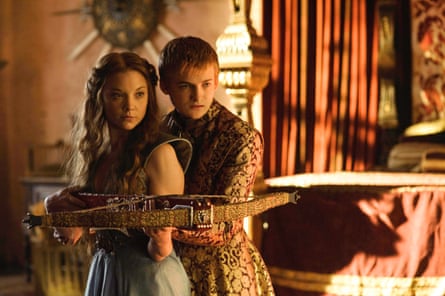
Dormer’s screen roles have been high profile – Anne Boleyn in The Tudors, Margaery Tyrell in Game of Thrones, Cressida in The Hunger Games – but she loves being back in the theatre. It was her first passion, lit by childhood trips with her grandmother. “To come back to the stage after seven or eight years, to be involved in a piece that has ambition for big, pivotal, defining emotion – I feel invigorated by the process.”
She loves the camaraderie, particularly of this production, which features a large ensemble cast (including her partner David Oakes), musicians, and children from a local youth theatre and their chaperones. What’s it like working with Oakes? He plays the wealthy landowner Levin, she points out, and their stories are separate. “We have the perfect setup. He walks into rehearsal, I walk out. He walks on stage, I walk off. So it’s the best world of working together, but not working together.” At home, she says with a laugh, they practise their lines, because there are just so many of them. “It’s good to have a scene-running partner. ‘Just before you turn off the light, darling, could you just run these two scenes with me?’”
Her Anna is, she says, a “proto-feminist” although she knows it can be contentious to inflict modern sensibilities on period pieces. The historian Hallie Rubenhold recently criticised the BBC for The Scandalous Lady W, its adaptation, starring Dormer, of her book about Lady Worsley, the 18th-century aristocrat who caused a scandal with her affair and elopement. Speaking at the Hay festival last month, Rubenhold said that, much as she enjoyed the experience, she was “slightly uncomfortable” that Dormer’s character was portrayed as feminist.
“I really feel for academics,” says Dormer, with a smile (she nearly studied history at university, but went to drama school instead). Ultimately, her job, she explains, is to flesh out the character, “make them as three-dimensional and human as I can” – while choices about historical accuracy are made by others. “You can try and steer it,” she says. “I fought for Anne Boleyn to be more overtly evangelical, and educated in the reforming revolution that was happening in northern Europe at the time. She was a true reformer, so I fought to get one speech in that nodded to that.”
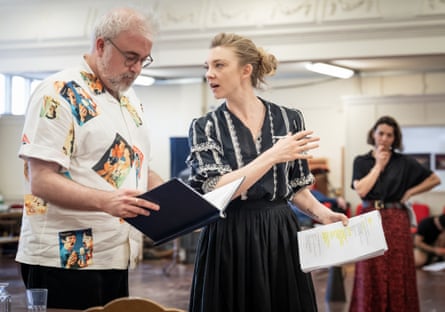
Dormer, who grew up in Reading, was an only child until she was around seven, and she remembers playing alone a lot, pulling out clothes from her dressing-up box and talking to herself as different characters. As an adult, she says, “there’s always, for me, been a catharsis in storytelling. You’re trying to work out life. You’re trying to work out pain and anger and extreme joy. It’s a way of navigating feelings that are put so neatly into structured stories for us by wonderful writers, that makes them safe to explore.” In Anna Karenina, those feelings amount to: “Holy fuck, the world is crazy. It’s scary, and what world are we giving to our children? That’s one of those themes that makes it universal and timeless.”
For a long time, Dormer has supported the children’s charities Childline and NSPCC, and in recent years has been involved with their campaigns on online safety. Dormer rattles off numbers, such as the more than 80% rise in online grooming of young people since 2017, the one in 14 children who have shared naked or semi-naked photos online. She doesn’t do social media, despite being advised early in her career that she should. In the frenzy following Game of Thrones, and the huge boost to her profile, she could have picked up millions of followers but decided not to.
“There’s a fork in the road when you’re in something of that level,” she says, “and I just kept my head down.” Privacy has always been something Dormer has guarded, but she did think about doing social media recently, then stopped herself. “I can’t quite bring myself to – until tech platforms take responsibility for their irresponsibility towards young people.”
If there is a through-line in Dormer’s work, it’s that many of the women she plays have been constrained by their times, and the expectations placed on them, but have strategically made it work for them (Anne Boleyn, Margaery Tyrell) or broken free entirely (Anna Karenina, Lady Worsley) – even if many ultimately met an unpleasant end.
In a new film, Audrey’s Children, due to be released in the UK this year, Dormer plays Dr Audrey Evans, a paediatric oncologist, who defies sexism and outdated thinking in the late 1960s to pioneer cancer treatment for children and the care of their families. Then, in the upcoming drama The Lady, about the royal aide Jane Andrews who was convicted of murdering her partner in 2001, Dormer plays Sarah Ferguson, the Duchess of York, another woman navigating the clash between society’s expectations and her own excitable personality and reckless choices.
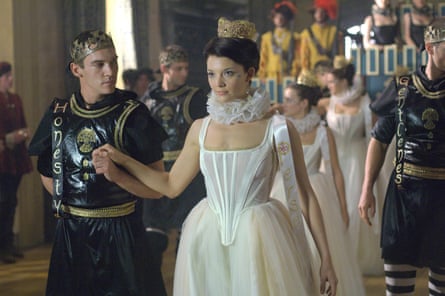
Has the choice of roles been deliberate? It was always about the quality of the part, says Dormer, and whether she wanted to work with a particular writer or director. But she adds: “If there are reccurring themes, then yes, they must be deeply embedded within me.”
Dormer also points out how scripts for women have become much more interesting. “When I started 20 years ago, that devil/whore v angel character was still prevalent.” Female characters are allowed to be antiheroines these days, she points out, with unsavoury personalities and questionable actions. “That’s a revolution in itself.”
I wonder what it was like to work with Madonna, who directed her in her 2011 film W.E. She laughs: “I can’t tell you – the NDA was that thick.” She holds her thumb and forefinger wide apart. But she does acknowledge that it was something she couldn’t have even dreamed about as a child growing up in the 80s, with her dressing-up box. “One of those moments when you catch yourself and you go, ‘How did this happen?’”
It’s the same feeling, she says, when she stands on stage at the Chichester Festival theatre, her face on the posters outside. “So whatever you’re beating yourself up with today, maybe just enjoy it for a moment.” Is she hard on herself? “I increasingly try not to be. I think when I was younger, yes. Now, not so much. I’ve learned compassion for myself, and [had] a lot of good therapists. Understanding how you treat yourself is a mirror to what your children will emulate.”
There’s nothing like being immersed in Russian literature, I suppose, to make you question life and its meaning. “Life is transient, as Tolstoy would tell us,” says Dormer with a smile, “so just enjoy this moment.”

 3 months ago
82
3 months ago
82


